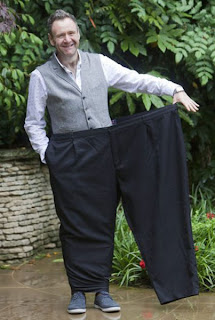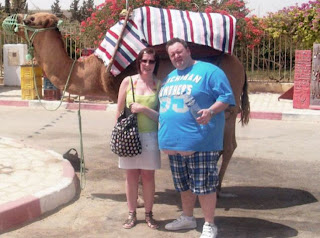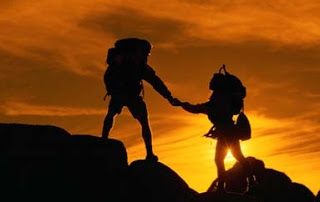
In “These Few Precious Days: The Final Year of Jack with Jackie,” author Christopher Andersen draws on a wealth of sources developed over the years writing 15 bestselling memoirs to portray
in intimate detail the final epoch of a marriage that fascinated the world.
MPI/GETTY IMAGES
John Fitzgerald Kennedy, the 35th President of the United States, with his wife Jacqueline and their children Caroline and John Jr. The first couple were often "strangely formal around each other," writes Christopher Andersen in new book.
In these excerpts, the author of “Jackie After Jack” and “The Day John Died” (about JFK Jr.) is unsparing about the president’s infidelities and drug use.
FOR ALL the soaring triumphs, soul-testing trials, and crushing tragedies that would befall Jack and Jackie during his historic presidency, the most celebrated couple in the world would finally bridge the yawning emotional chasm between them only within the walls of the White House.
When Jackie Kennedy first set foot in the White House as America’s first lady, she could not have dreamed that this would be where she and Jack would come closest to fulfilling her dream of a happy marriage. “I said to myself, ‘It will be such a goldfish bowl. With the Secret Service and everybody here, I’ll never see my husband. It will ruin our marriage.’”
Soon she realized the opposite was true. “I remember thinking, ‘What was the matter with me?’ It was when we were the closest,” she said. “I hadn’t realized the physical closeness of having his office in the same building and seeing him so many times a day.”
“It was,” Jackie said without hesitation, “the happiest time of my life.”
Copyright © 2013 by Andersen Productions. From the forthcoming book THESE FEW PRECIOUS DAYS: The Final Year of Jack with Jackie by Christopher Andersen to be published by Gallery Books, a Division of Simon & Schuster, Inc. Printed by permission.
The president and first lady were often strangely formal around each other — even in front of staff members who saw them every day. In part, this was due to Jack’s aversion to touching and being touched in a nonsexual way — an idiosyncrasy rooted in his childhood.
“He would never hold hands in public,” Jackie conceded, “or put his arm around me — that was naturally just distasteful to him.”
Like Jack, Jackie grew up watching her parents treat each other with icy indifference. And, along with most members of her generation and her class, she viewed egregious displays of affection in public places as gauche.
“Jackie was a very self-contained person, especially in the White House,” said Kennedy family photographer and close friend Jacques Lowe. “She very much lived her own life, as much as she was allowed to. Jack certainly wasn’t jumping into bed with her every night. But when they were both there, they made time for each other.”
Their ambition would, in the end, make them the most celebrated couple in the world. But a shared ambition is not what drew them together at first. “They were two lonely people,” their friend Chuck Spalding said, “And they instantly recognized that in each
other.
”
CECIL STOUGHTON/AP
Marilyn Monroe with President John F. Kennedy, center, and Robert Kennedy, left, at a Democratic fundraiser on May 19, 1962 at a home in New York City. Monroe had come straight from Madison Square Garden, where she had sung sultry "Happy Birthday" to the president.
Spalding went on to describe them as “emotionally the two most isolated, most alone people I have ever met.”
Were they truly in love when Jack asked Jackie to marry him? The president’s loyal secretary, Evelyn Lincoln, thought not: “He was a politician who wanted to be president and for that he needed a wife. I am absolutely certain they were not in love. At least not at the time.”
Not withstanding Evelyn Lincoln’s view, many of their friends believed that what they did have — what her half brother Jamie Auchincloss called “an intensity, an electrical current between them” — deepened over time.
“If he was capable of loving any woman, and I believe he was,” said pioneering broadcast journalist Nancy Dickerson, who once dated Jack, “that woman was Jackie.”
* * *
In his scramble to the summit of power, Jack had scarcely proven himself to be a model husband. Jackie, living out her girlhood desire to be “part of a great man’s life,” had been willing to put up with Jack’s faithlessness so long as she was not the object of public humiliation — and in the abiding belief that she was the only woman he really loved.
AP
Dr. Max Jacobson, right, receives Scroll of Honor from Panamanian Ambassador Eusebio A. Morales, July 5, 1966. Jacobson was Kennedy's "Dr. Feelgood," injecting the president with amphetamines four times a week, according to new book by author Christopher Andersen.
JFK’s Air Force aide, General Godfrey McHugh said early on, “Jackie knew about his women.” Her friend Ralph Martin agreed. “You know, in the end Jackie knew everything. Every girl. She knew her rating, her accomplishments . . .”
That didn’t mean she took Jack’s cheating lightly. “She didn’t like Jack’s fooling around. She was damn mad about it,” said Jack’s close friend, George Smathers. “But she was willing to look the other way as long as he was careful.”
Jackie conceded to Dr. Frank Finnerty, to whom she confided the most intimate details of her marriage, that her husband was so promiscuous and his extramarital conquests so numerous there was no way either she or he could possibly identify them all. But more than any of JFK’s other lovers, Marilyn Monroe “seemed to bother her the most” — in large part because Marilyn was a loose cannon who could go public at any time, causing a scandal that would obliterate her husband’s reputation, destroy her marriage and hold her up to public ridicule.
She wondered if her own sexual inadequacies had pushed Jack away.
To a gob-smacked Finnerty, Jackie described her husband’s usual modus operandi in bed: “He just goes too fast and falls asleep.”
Was there something she could do to change that? There was, and after some understandable hesitation Finnerty spelled out in clinical detail how foreplay could be used to improve their sex life.

Gore Vidal, seen here with President Kennedy, was "horrified" to learn that Dr. Max Jacobson was treating the president. "Watch out," he warned Jackie. "Stay away from him ... Max drove several people mad."
Jackie reported back to Finnerty that relations between the president and the first lady had improved significantly — although not enough to stop Jack’s skirt-chasing. If nothing else, from this point on Jackie had no reason to blame herself for her husband’s sexual compulsions.
And she was right to fear Marilyn Monroe. The actress had always grappled with severe psychiatric and emotional problems, made worse by alcohol and prescription drug abuse. At thirty-six, she realized her sex symbol days were numbered and began to see a new role for herself: as the second wife of the president. Confiding the most intimate details of the affair to her friend Jeanne Carmen, Marilyn was convinced JFK was about to leave Jackie for her. “Can’t you just see me,” she asked Carmen, “as first lady?”
Peter Lawford claimed that Monroe called the White House and told Jackie of the affair, of Jack’s alleged promises to her. “Marilyn, you’ll marry Jack, that’s great,” Jackie reportedly responded in that breathy voice that sounded not unlike Monroe’s. “And you’ll move into the White House and you’ll assume the responsibilities of first lady, and I’ll move out and you’ll have all the problems.”
* * *
Max Jacobson, known as Dr. Feelgood, administered high-dosage amphetamine shots laced with steroids to the president on a regular basis. In fact, he would do multiple duty injecting the president, first lady, and members of their inner circle at the height of the Cuban Missile Crisis.
Apparently even Jacobson, aware that the other physicians treating the president vehemently objected to his methods, entertained doubts about whether his was the right approach. Although JFK assured him that the regular four-times-weekly injections weren’t interfering with his work, Jacobson handed Jack his resignation. JFK tore it up.
AFP/GETTY IMAGES
President Kennedy with press secretary Pierre Salinger, who said Kennedy came to rely on Dr. Max Jacobson for more than shots. "He came to rely on Max to bolster Jackie's spirits," Salinger is quoted in Christopher Andersen's new book.
“The President was very fond of Max Jacobson, and it wasn’t just because of the boost he was getting from those shots,” conceded press secretary Pierre Salinger. “He came to rely on Max to bolster Jackie’s spirits. The quicksilver changes in her mood were getting pretty hard for him to take.”
“Jackie could be absolutely giddy and enchanting,” her half brother Jamie Auchincloss said, “and then you’d turn around, and for no apparent reason, she’d just turn off as if someone had flipped a switch.” These shifts could spell the abrupt end of even a long friendship. “She was one of the most emotionally self-sufficient people ever,” Jamie marveled. “You’d be in her life one moment, and out the next. Gone. And it really didn’t seem to bother her one bit.”
Oleg Cassini could understand Jack’s frustration in dealing with his wife’s shifting moods. “She might be very warm one day and freeze you out the next,” he said. “She did this to everyone, even her closest friends. You never really knew where you stood with Jackie. I never quite knew on which foot to dance.”
Dr. Max’s magic bullets may have helped Jack and Jackie to cope in the short run, but Jack’s other physicians grew concerned that they might interact with the dozen or so other drugs Jack was taking for his Addison’s-related problems.
Even Gore Vidal, who had been a patient of Jacobson’s, was “horrified” to learn he was treating Jack. “Watch out,” he warned Jackie. “Stay away from him. I know him well. Max drove several people mad.”
Chuck Spalding, the man who introduced Max to the Kennedys, was also having second thoughts. At one point, Jacobson’s bizarre behavior and his own dependence on the injections made Spalding, “very frightened . . . . The whole thing had gotten so completely out of hand.”
It didn’t matter to the president. “I don’t care if there’s panther p--- in there,” JFK said, “as long as it makes me feel good.”
































.jpg)

